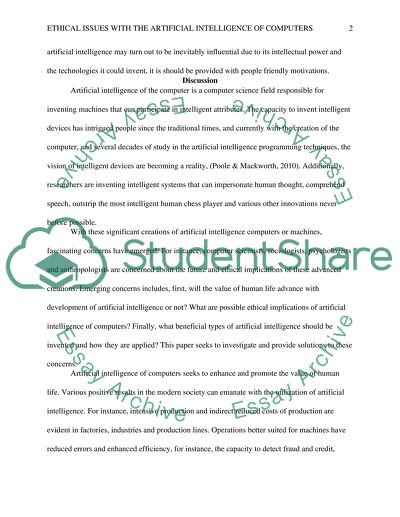Cite this document
(“Ethical issues with the artificial intelligence of computers Research Paper”, n.d.)
Retrieved from https://studentshare.org/information-technology/1459221-ethical-issues-with-the-artificial-intelligence-of
Retrieved from https://studentshare.org/information-technology/1459221-ethical-issues-with-the-artificial-intelligence-of
(Ethical Issues With the Artificial Intelligence of Computers Research Paper)
https://studentshare.org/information-technology/1459221-ethical-issues-with-the-artificial-intelligence-of.
https://studentshare.org/information-technology/1459221-ethical-issues-with-the-artificial-intelligence-of.
“Ethical Issues With the Artificial Intelligence of Computers Research Paper”, n.d. https://studentshare.org/information-technology/1459221-ethical-issues-with-the-artificial-intelligence-of.


